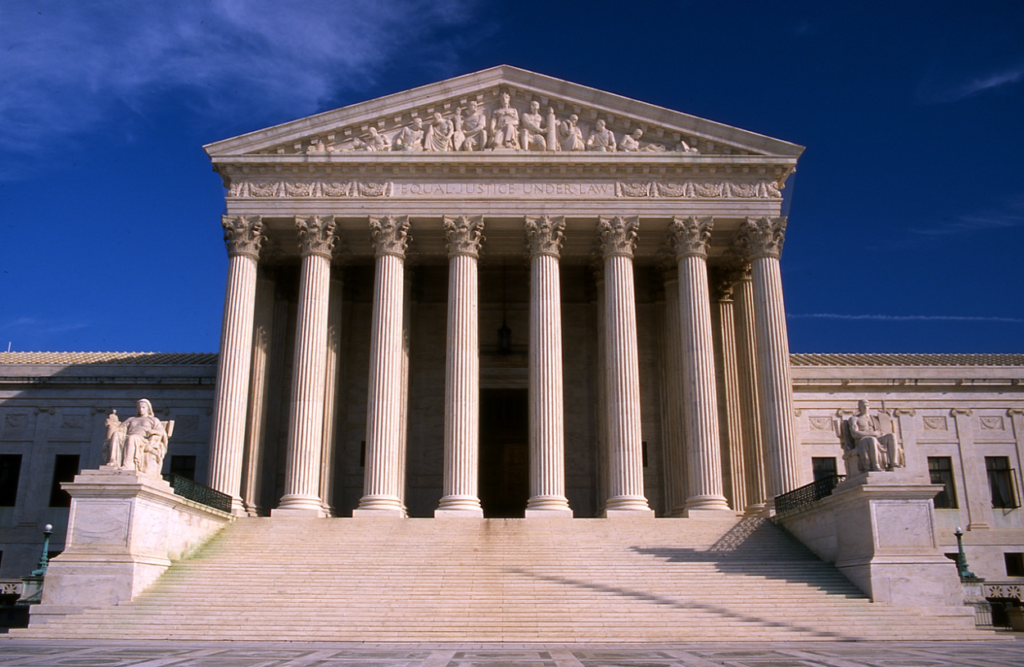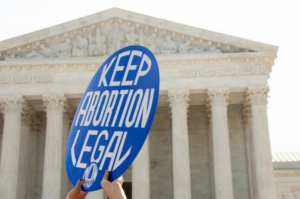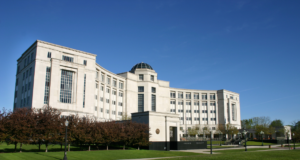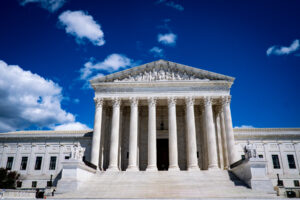Supreme Court could overturn Roe v. Wade, straining fragile reproductive health care system
6 min read
The U.S. Supreme Court appears likely to overturn Roe v. Wade or “effectively” overturn it, legal experts said on Wednesday after the court heard oral arguments on Mississippi’s 15-week abortion ban.
The much-anticipated court case, Dobbs v. Jackson Women’s Health Organization, went before the court Wednesday for a two-hour oral argument. The state of Mississippi banned abortion at 15 weeks in 2019 and asked the court specifically to overturn the 1973 landmark decision.
Ellie Rushforth, an attorney with the American Civil Liberties Union of New Mexico, said that, after listening to the court Wednesday morning, it seemed clear that the justices, “regardless of the arguments presented by the attorneys today are pretty well settled in their minds on this issue.”
Six of the nine justices are conservative and several have spoken explicitly or made previous rulings indicating that they oppose abortion.
“It was pretty clear by the questions the justices asked and the way they were talking to one another that we don’t have the size necessary to uphold Roe as it stands today,” Rushforth said.
At least five of the nine justices would have to rule against the state of Mississippi to uphold Roe v. Wade.
The question now is more likely to be how far the court will go in how it rolls back Roe v. Wade. The court could rule in favor of Mississippi’s 15-week ban but not expressly say it is overturning Roe v. Wade, Rushforth said.
If that happens, she said the court could focus on “empowering” states to decide abortion for themselves.
But if that’s the case, the outcome will “functionally” be the same as if the court overturns Roe v. Wade, Rushforth said.
Justice Brett Kavanaugh, a Donald Trump appointee, emphasized during oral argument that the Supreme Court should “remain neutral” on the question of abortion and “let the people decide” by making abortion a decision for states or the U.S. Congress to maintain abortion as a constitutional right.
Rushforth told NM Political Report that allowing state legislators to be “the arbiters of a private medical decision” will impact individuals, particularly people without resources.
“When we have high maternal morbidity and mortality rates for women of color, high levels of poverty, no universal child care, no universal insurance coverage, no mandated paid sick leave – to say that a government making this decision for their citizens has no impact on a person’s life is not only disingenuous, it’s ridiculous,” she said.
Chief Justice John Roberts seemed particularly interested in the question of viability. Roe v. Wade allows abortion up to viability, which is roughly considered to be about 24 or 25 weeks of gestation.
“It’s entirely possible that the court doesn’t overturn Roe and rules in a way that allows the various other [state] trigger bans to go into effect somehow, even if they do draw some sort of a bright line,” Rushforth said.
But, she added, she thinks it’s “really unlikely” the justices will draw a “bright line” or a gestational cut off as to how long abortion would be allowed.
New Mexico is considered to be a state where abortion will remain safe and legal due largely to the passage of this year’s SB 10, the Respect New Mexico Women and Families Act. The law, signed by Gov. Michelle Lujan Grisham before the legislative session ended in March, removed antiquated language that would have banned abortion with few exceptions if the Supreme Court overturned Roe v. Wade.
Abortion rights experts and advocates consider New Mexico and Colorado as places where abortion will likely remain safe and legal, along with states on the west coast and the northeast. The south and the Midwest are expected to be particularly hard hit with abortion bans, reproductive health experts have said.
Vicki Cowart, Planned Parenthood of the Rocky Mountains president and chief executive officer, told NM Political Report via email that new research shows that as many as 36 million women and other reproductive age individuals would lose access to abortion if the court overturns Roe v. Wade.
That equals into nearly half of all women and other individuals of reproductive age in the U.S. who could lose access to abortion.
Julie Rickelman, the attorney for the Center for Reproductive Rights who argued the case before the Supreme Court, said during a press conference after the oral arguments that if the court overturns Roe v. Wade, the decision will be “devastating for women across the country.”.
She said she remains optimistic that the court will rule in favor of Jackson Women’s Health Organization because “this right is so critical and the facts of the law are on our side.”
Shannon Brewer, the clinic director of Jackson Women’s Health Organization in Mississippi, said during the press conference that the women who need the constitutional right to abortion the most are the individuals who will be most affected – low income people of color.
Rushforth said the nation’s health care system is “fragile,” and the entire country could find itself in a “healthcare collapse” if women are forced to travel to a handful of states, including New Mexico, for reproductive healthcare.
“What we know is that regardless of what medical care you need in this country, our health care system, as evidenced by this pandemic, is fragile, incredibly fragile,” she said, adding that “what we know is that when over half of the states in this country dramatically restrict or ban abortion, the rest of the states simply do not have the infrastructure to absorb that need.”
Rushforth pointed to the situation already caused by Texas SB 8, which bans abortion at six weeks in that single state. Texas has about 55,000 abortions per year, while New Mexico has about 3,000 abortions on average annually, reproductive health experts have said. Since Texas SB 8 went into effect at the beginning of September, New Mexico abortion clinics and abortion funds have been overwhelmed by the additional need and wait times in clinics for appointments have increased.
“Restricting and banning abortion state by state could absolutely lead to a medical crisis and infrastructure crisis,” Rushforth said. “Folks who will feel that the most are folks who do not have access to adequate and affordable healthcare. Without significant investment in public health infrastructure and reproductive health infrastructure in particular, we are on the brink of an infrastructure crisis.”
If the court rules in favor of Mississippi or overturns Roe v. Wade altogether, Rushforth reiterated Justice Sonia Sotomayor’s comment during oral argument about the “stench” that will never leave the court.
“She really set the tone in saying that the institution would not survive the ‘stench’ that decisions of this court are going to be determined by politics and nothing but political acts. Multiple times Justices Sotomayor, Kagan and Breyer asked how the court will survive if it’s willing to overrule precedent that two generations of people have ordered their lives around,” Rushforth said.
Kavanaugh argued that the court has overturned cases of precedent in the past and offered a long list of such cases. Rushforth said that what’s misleading about that argument is that the vast majority of those cases, when the court overturned them, the court was giving back individual rights previously stripped by the government.
“So claiming that these cases are similar is just incorrect in my mind,” Rushforth said.
Rushforth said there are a host of other abortion restrictions in place in other states, such as forced ultra sounds, forced parental involvement, forced waiting periods and bans on insurance coverage, that will have to be revisited if the court changes the law.
“The question is are they willing to do this incrementally or are they willing to risk the legitimacy of the court and overrule it this term,” she said.
This article was originally posted on Supreme Court could overturn Roe v. Wade, straining fragile reproductive health care system







